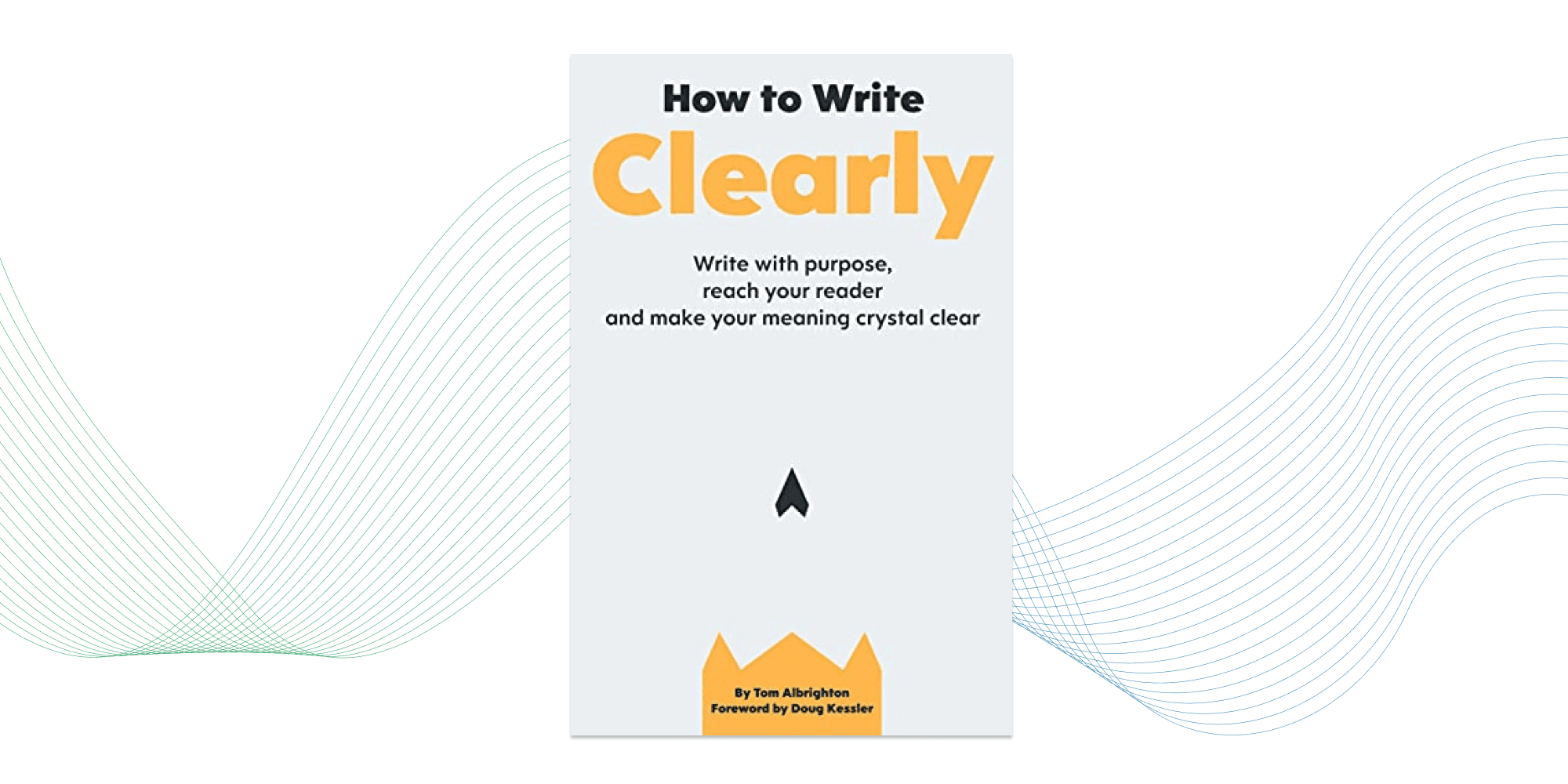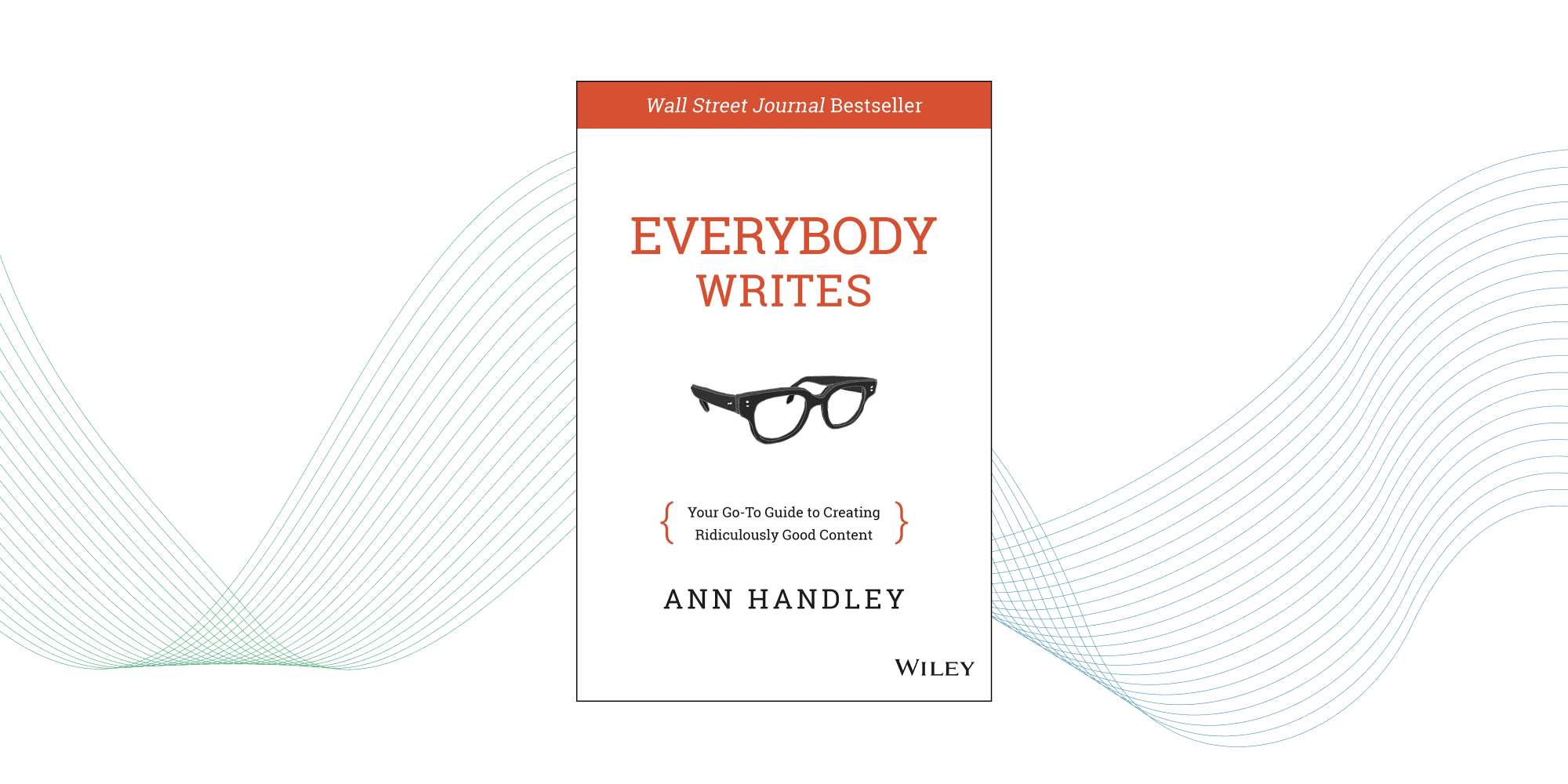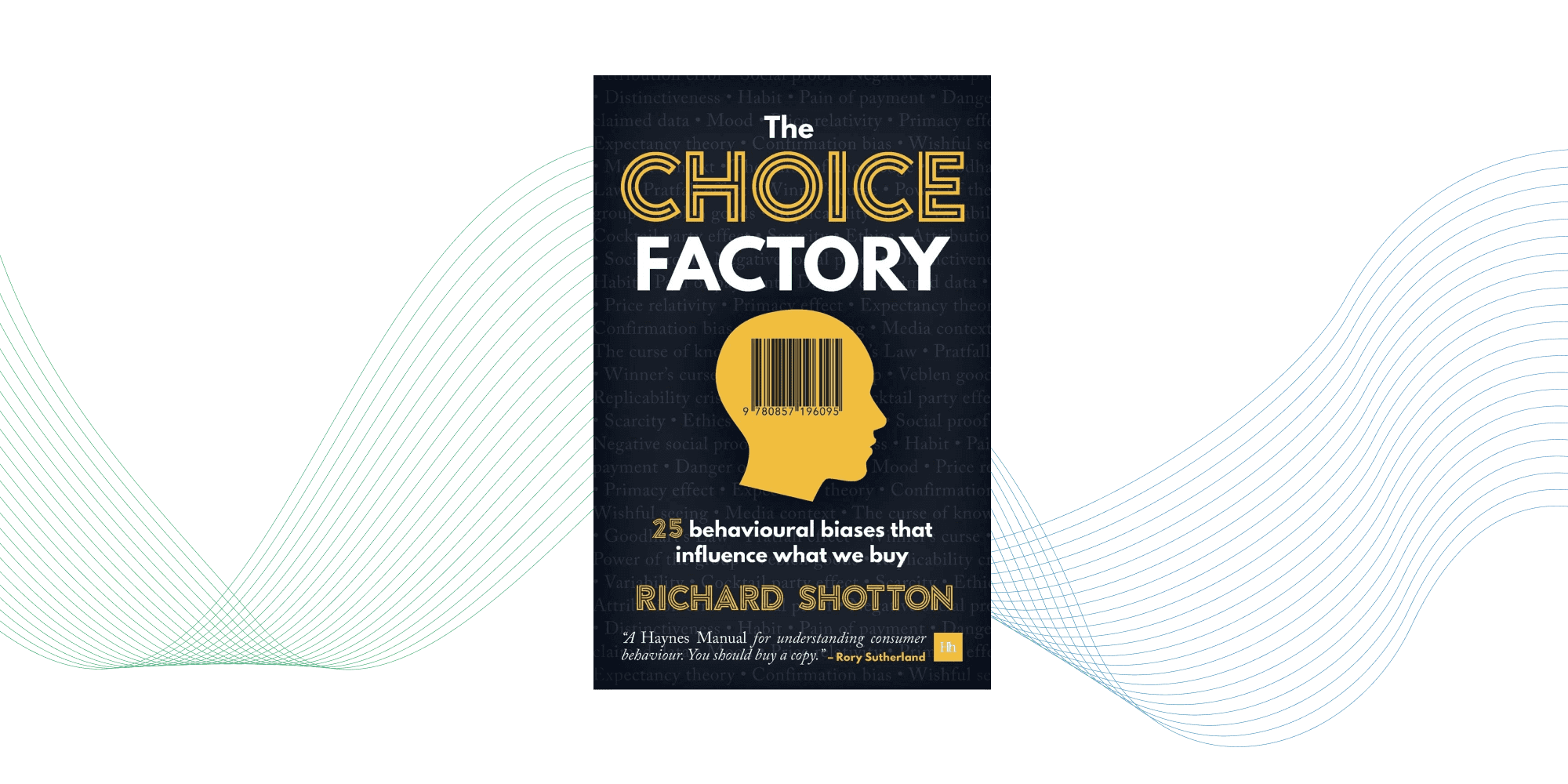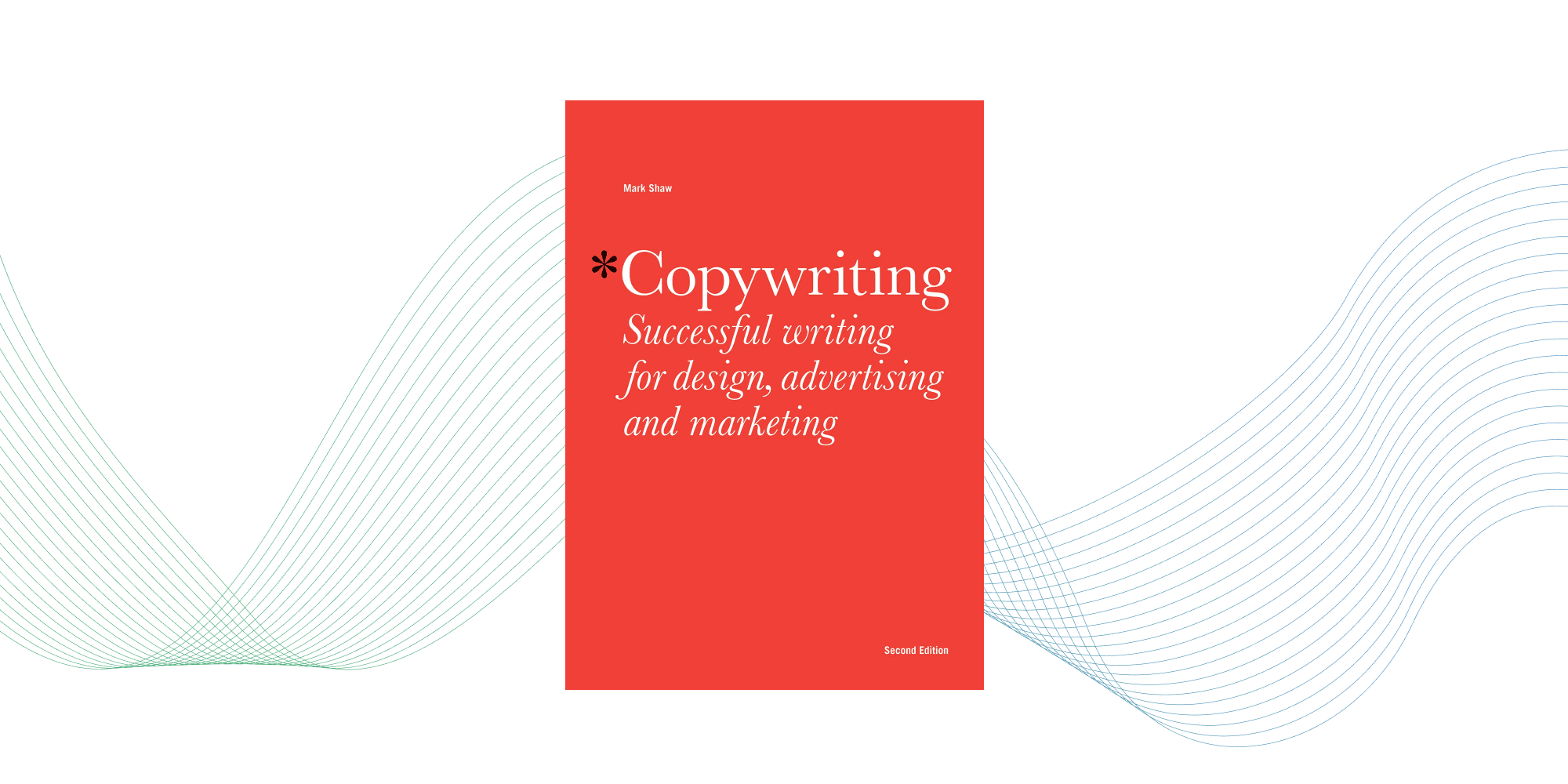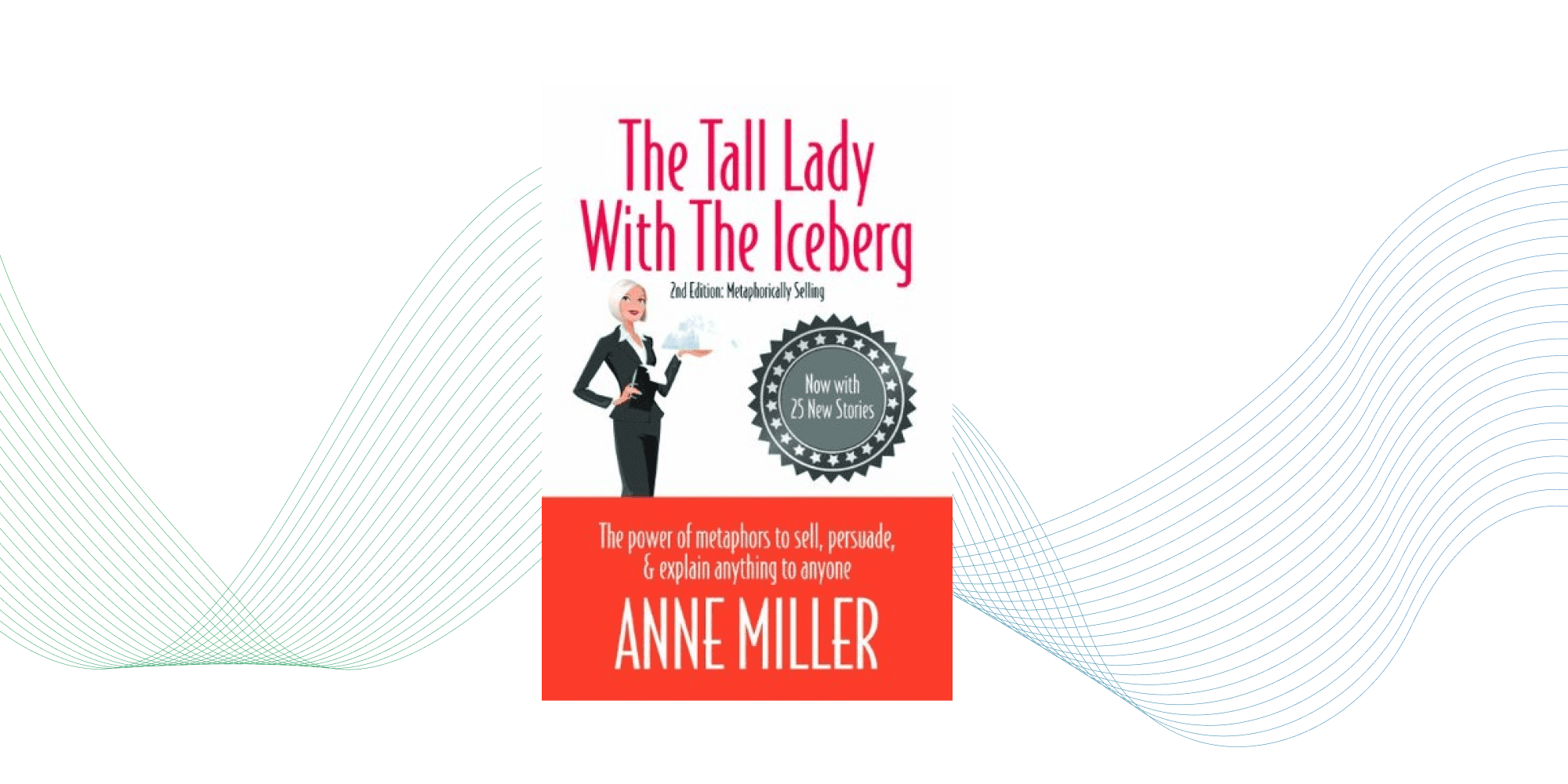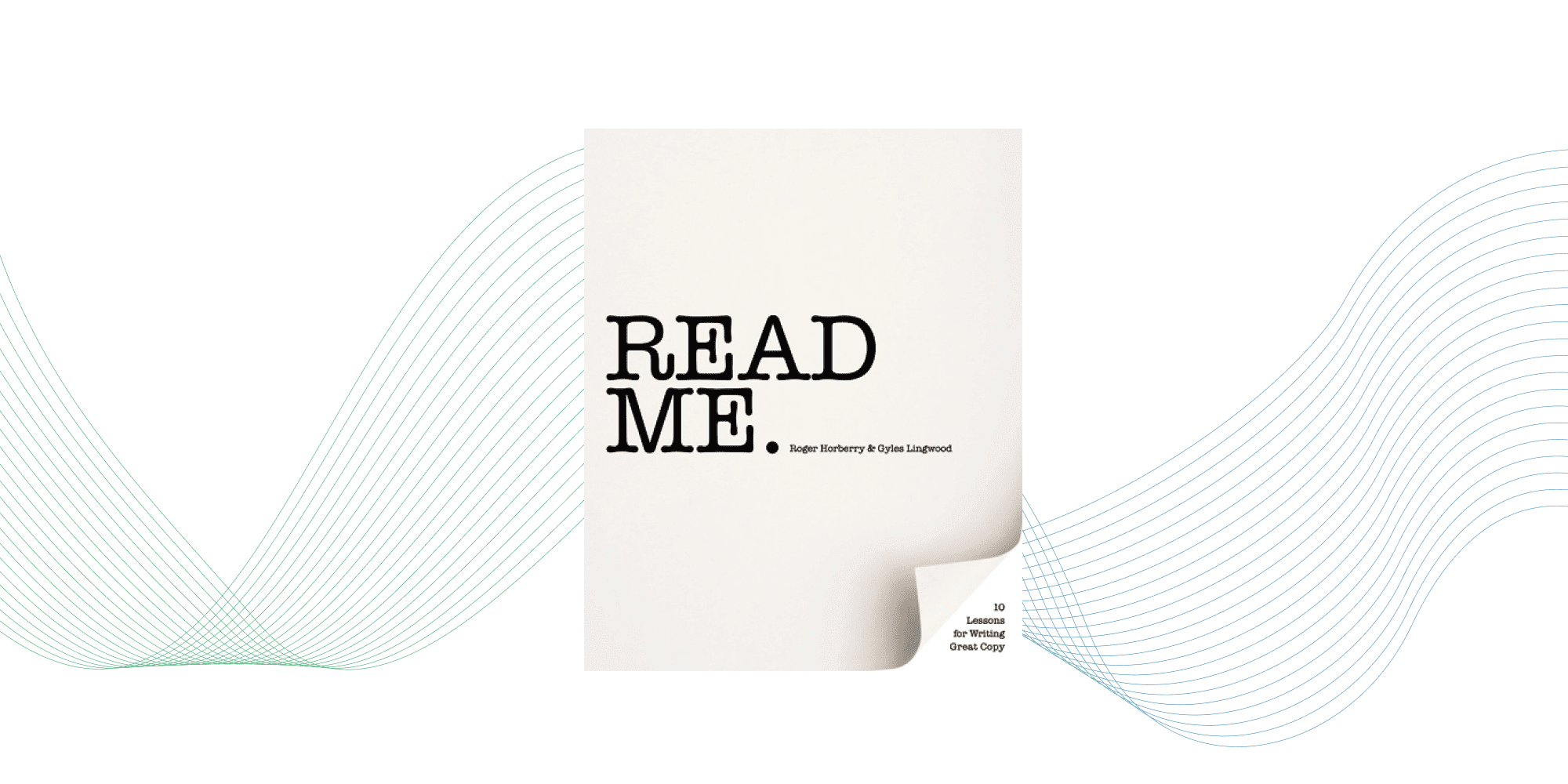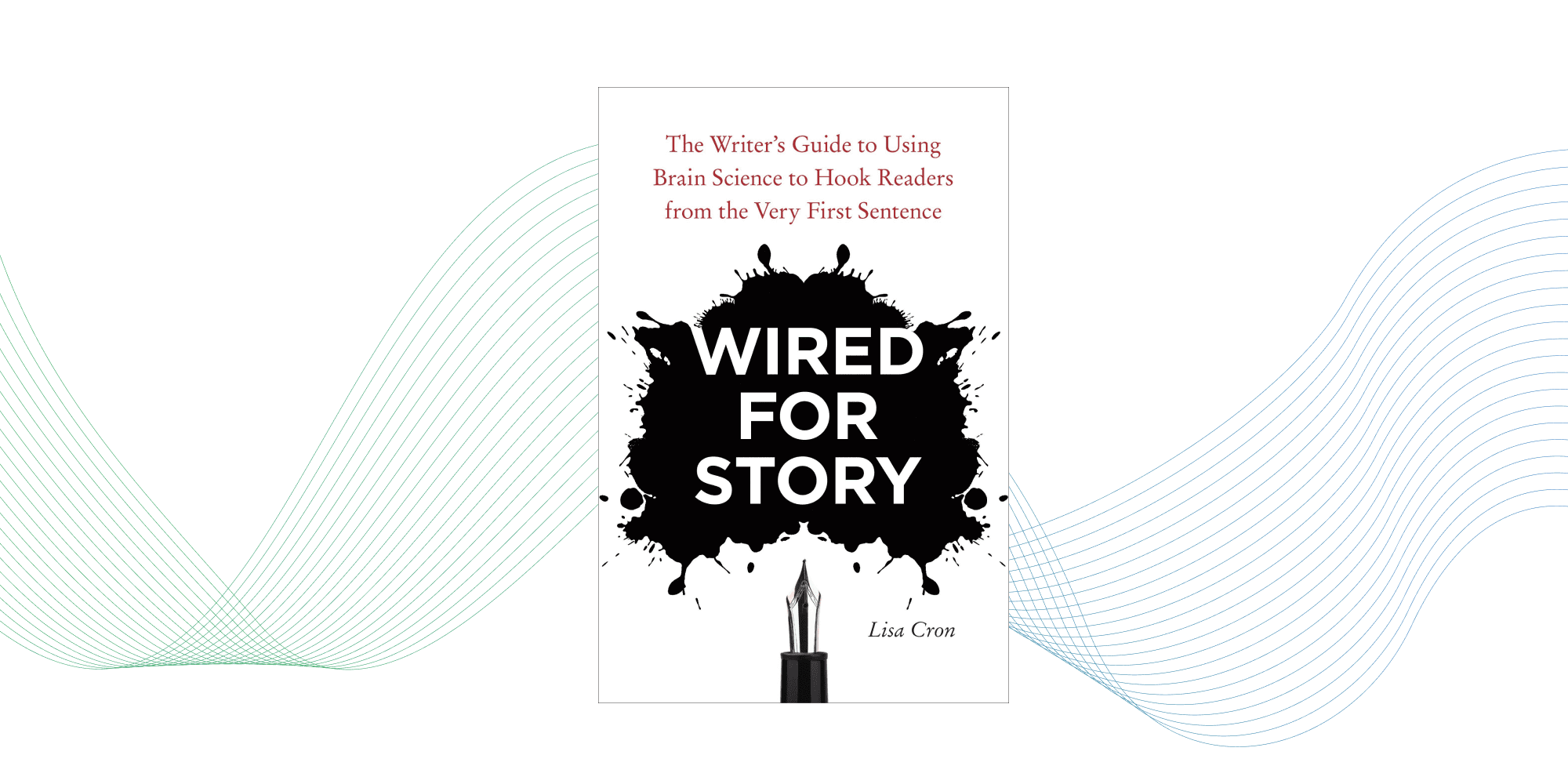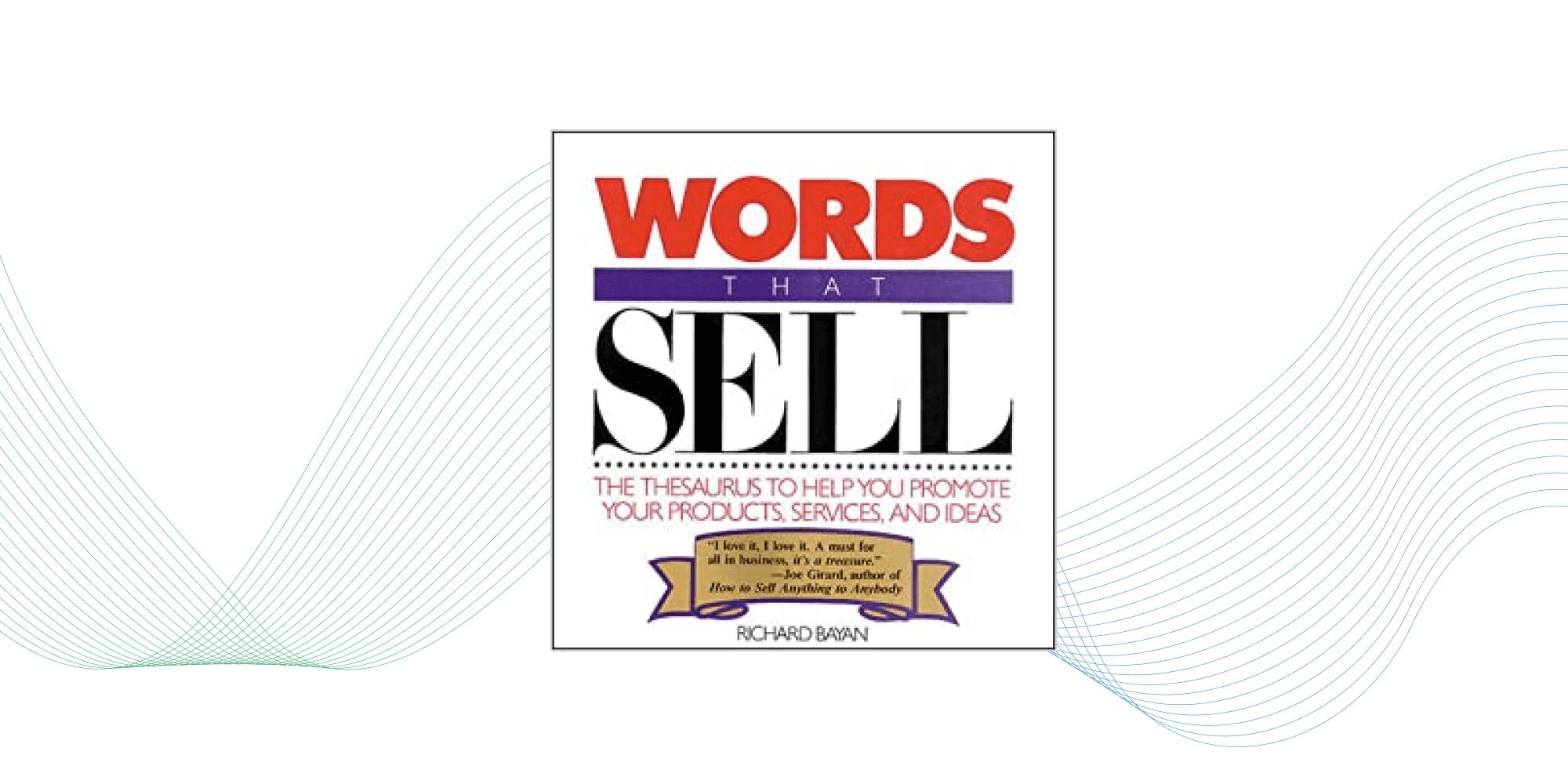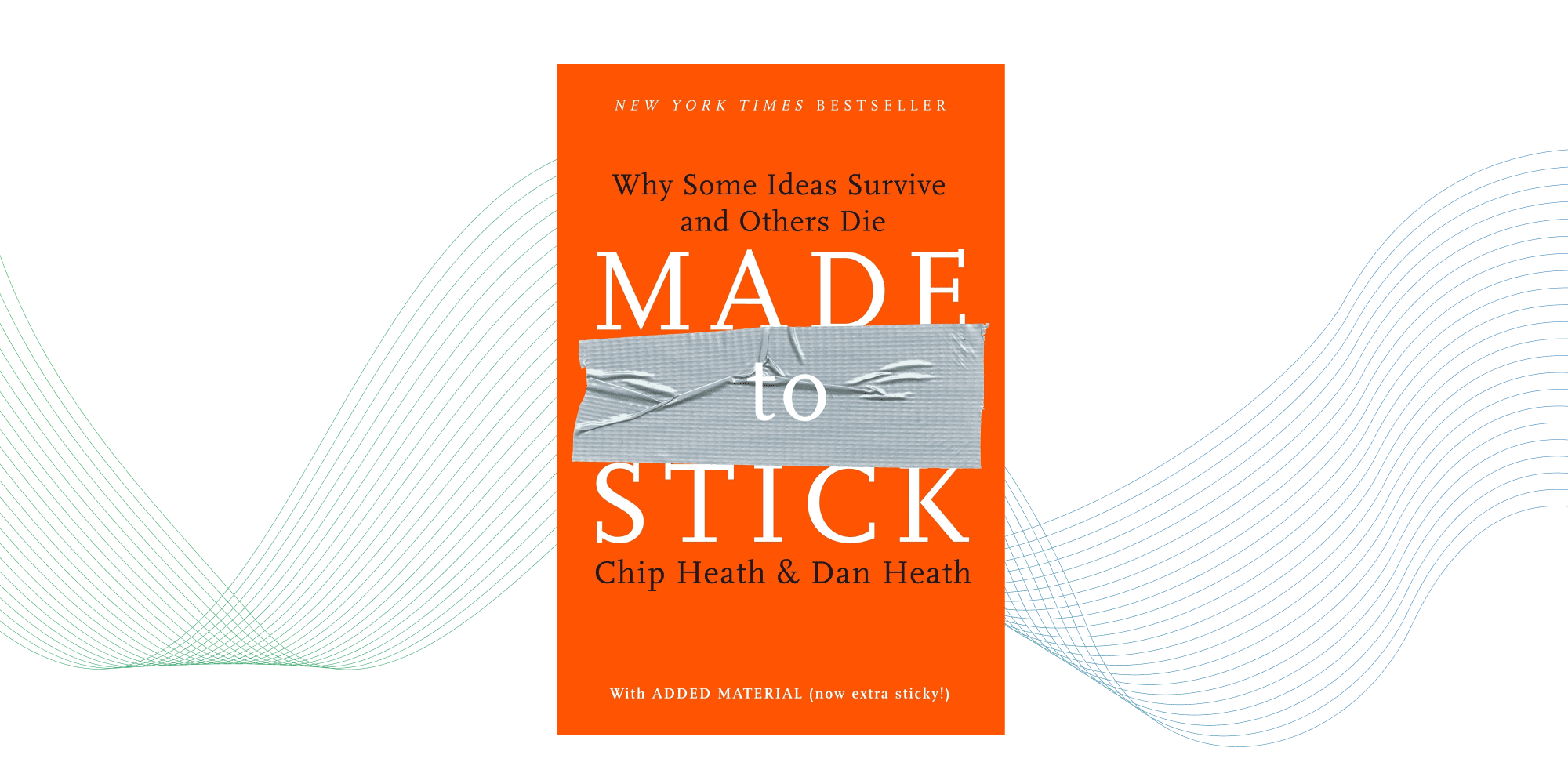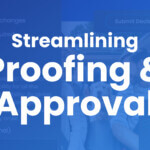Effective writing is a vital skill for anyone who works in the marketing world. It is crucial for connecting with any audience, internal or external. It ensures the people you’re working with or talking to truly understand your ideas. Effective writing for marketing is essential for collaborations and for aligning your team’s aims for particular projects.
Effective Writing for Marketing
Whether you are writing an email or a positioning statement, building a strategy or whitepaper, developing web copy, or an infographic, it all requires a way with words.
While writing is a skill that is learned through experience and practice, there’s immense value in absorbing the expertise of other writers and accepting the advice they have to offer.
We’ve curated a reading list of books from celebrated marketing professionals and writing experts, all sharing the writing wisdom they’ve discovered over years of practice. These insights will help you recognize and craft messages that will resonate with your audience.
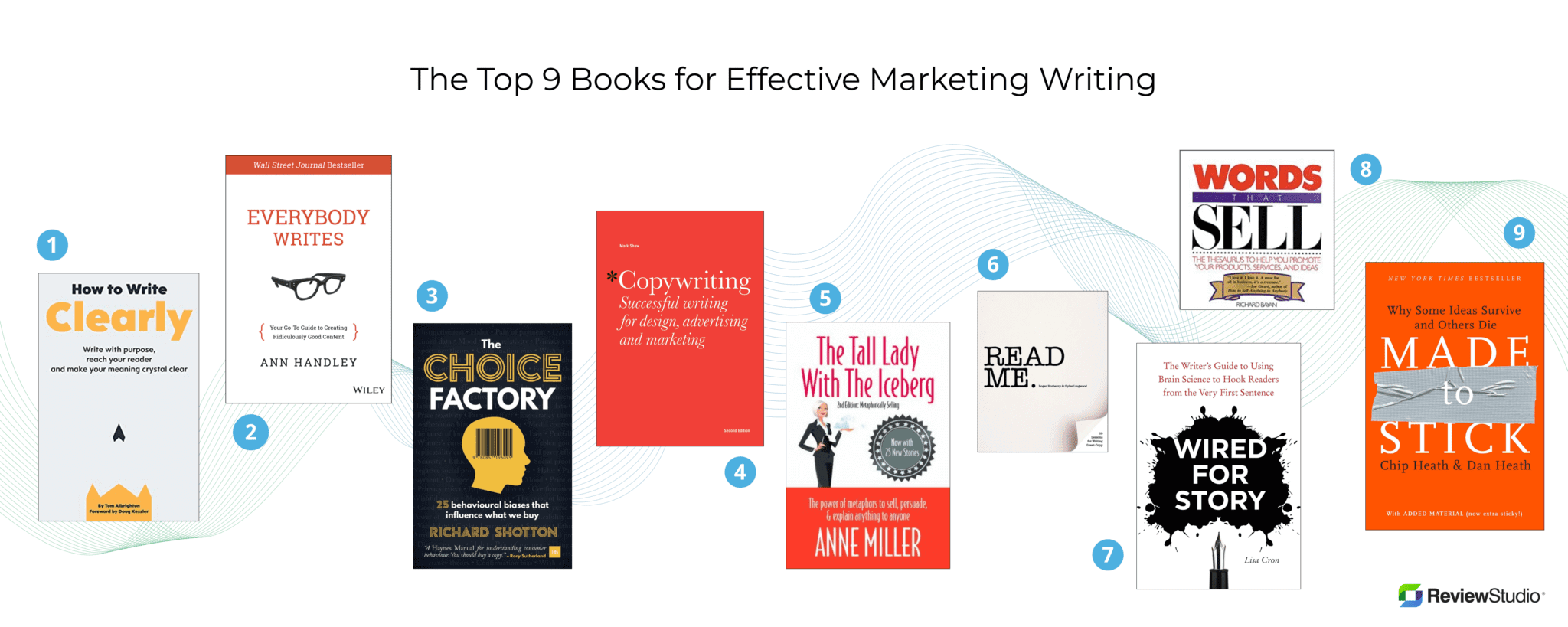
1. How to Write Clearly by Tom Albrighton
How to Write Clearly is a primer on communicating your ideas in the best possible way. It’s founded on the inescapable truth that a creative idea or mechanism won’t do any good if your reader can’t instantly grasp the point you’re trying to make.
Written in a friendly, accessible, and no-frills style, it offers a firm foundation in the elements that go into effective writing and the factors you need to consider. Albrighton’s universal advice and principles will help whether you’re writing an ad, a whitepaper, or a simple email to a colleague. It will give you the skills and the confidence you need to write something which communicates exactly what you need it to.
2. Everybody Writes by Ann Handley
With Everybody Writes, Ann Handley, Chief Content Officer at MarketingProfs, set out to create a book that was:
“Part writing guide, part handbook on the rules of good sportsmanship in content marketing, and all-around reliable desk companion for anyone creating or directing content on behalf of brands.”
The book outlines the golden rules to keep in mind while writing content and includes advice on how to infuse your writing with empathy and integrity. In addition, Handley provides actionable tips on issues unique to creating and publishing branded content. So, you’ll be able to back up great writing with complementary skills and knowledge. Readers praise the book’s warm and witty style as an enjoyable read.
3. The Choice Factory by Richard Shotton
As readers, we all have cognitive biases and experiences that will affect how we respond to a piece of writing. This book will teach you how to make them work in your favor.
The Choice Factory examines twenty-five cognitive biases and offers practical advice on how marketers can appeal to them. Drawing on academic studies, research from the world of advertising, and relatable real-world examples, Shotton makes psychology accessible and easily applicable.
While the book isn’t geared specifically towards writing, it’s an invaluable tool when deciding what to write about and how to write in a way that will click with your reader’s psychology. It also equips you with the knowledge to examine why marketing content can succeed or fail and to identify the effect of cognitive biases on your own thinking.
4. Copywriting: Successful Writing for Design, Advertising, and Marketing by Mark Shaw
In its second edition, this is a comprehensive guide to many types of copywriting. While the basic precepts of good writing apply in any context, there are vast differences between copy for a landing page and a brochure. This book will aid your understanding of the nuances at play.
The author offers:
- Shared experiences from a long and varied career at the helm of several different creative agencies.
- Copy techniques in action, rather than theory-based.
- The most effective techniques for copy in general and those particularly suited for specific contexts.
- Insights into how copy works with other aspects of branding.
Shaw’s book also includes many striking examples of real-world campaigns and interviews from top copywriters on what they believe is most important when crafting effective writing.
5. Tall Lady With The Iceberg by Anne Miller
Tall Lady With The Iceberg aims to equip you with the knowledge and creativity to become a master of the metaphor.
Miller, who has over twenty-five years of presentation experience, encourages you to be bold with metaphors, emphasizing their power to make concepts relatable by introducing vivid visuals into an abstract subject. The book also helps you understand the influence metaphors have on your audience’s thinking. You could even say that using the right one is “a sudden burst of sunlight beaming out from behind a cloud”.
Being creative is essential in marketing and writing. There are a variety of techniques for boosting creative thinking. However, it can be difficult to quantify (or qualify) just what makes something creative and then incorporate it into your work. This book empowers you to inject creativity into your writing effectively.
6. Read Me: 10 Lessons for Writing Great Copy by Gyles Lingwood
If you struggle to read an entire book – either due to time constraints or because it doesn’t suit your learning style – this book offers you a hands-on alternative.
Read Me is a course in book form, structured into ten punchy and conversational lessons on the elements of strong brand copywriting. You’ll discover chapters on storytelling, tone of voice, audience engagement, and more. Crucially, each of these self-contained lessons ends with exercises to help you put the advice into practice right away. As well as the author’s advice, it features real-world examples and motivational interviews with industry professionals.
7. Wired For Story by Lisa Cron
Storytelling has become a marketing buzzword, with many people offering their own interpretations of what it means and why it’s important. This book cuts through the noise and helps you approach storytelling from a new and powerful direction: neuroscience.
By using our understanding of the human brain, Wired for Story aims to demystify ‘good writing’ and help you harness people’s instincts to discover what happens next. In each chapter, Cron, who has worked as a story consultant for Warner Bros, examines distinct aspects of the brain and how stories influence them. The author then demonstrates what that information tells us about effective storytelling. It’s a fascinating read and uses many different examples from classic literature to pop culture, allowing you to understand the cognitive effect of stories you might have enjoyed yourself.
And it’s worth mentioning if you haven’t read Joseph Campbell’s book The Power of Myth – start there first. The book highlights the patterns that appear again and again in human mythology – from the gods of Mount Olympus to Star Wars. If you’re interested in why certain story-shapes have captivated us throughout history and what they might say about modern culture, it is a must-read.
8. Words that Sell by Richard Bayan
Words that Sell will help you find the right word for a job and stop you from falling back on worn-out sentiments.
The book features a wealth of suitable alternatives for many of the most common words that you might need to use in your marketing. You’re bound to find the perfect (and less worn-out) synonym to more effectively exalt your brand or latest initiative. In addition, the book also features a breakdown of copywriting basics and an invaluable section on mistakes to avoid, including commonly misspelled words and pretentious phrases.
9. Made to Stick by Chip and Dan Heath
Made to Stick is a compelling look at why some ideas have the power to stick in our minds. It will help you zero in on the things that are most likely to stay with your audience after they finish reading.
The book deconstructs famously ‘sticky’ ideas, including advertising campaigns, military strategies, slogans, and urban legends, which have firmly taken root in the public consciousness. It also provides formulas and methods for objectively gauging the clarity and impact of a message, enabling you to put the ideas to the test on your own content.
While this is another book that isn’t specifically about the act of writing, it’s an essential read if you need to craft messages that your reader will remember.
The Takeaways (For More Effective Writing as a Marketer)
Whether it’s advice on sentence construction or on planting ideas that will take root in a reader’s mind, there is a wealth of writing knowledge out there. Read the work of pros who have been making words work for them for years. Learning effective writing for marketing starts with reading the right books!
Reading alone won’t make you an incredible writer overnight. Reading a book (or perhaps even all these nine books) is not a replacement for a healthy writing habit. What reading can do, though, is empower you with skills, techniques, and awareness that will supercharge your marketing efforts. And make your writing habit more effective.

